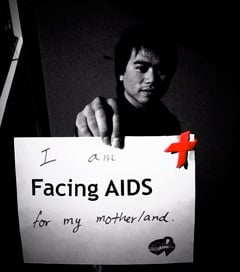On the cusp of the 30th anniversary of the discovery of AIDS, a new report from UNAIDS says there is reason to be hopeful that the global response to HIV and AIDS is having some positive impact. A record number of people—1.4 million—started treatment for HIV or AIDS in 2010, and the pace of new infections has slowed significantly. Between 2001 and 2009, new HIV infections declined by 25 percent around the world.
But according to the organization, an estimated 34 million people are living with HIV and nearly 30 million have died because of AIDS-related illnesses since the discovery of AIDS on June 5, 1981.
Today, with new advances in research, the most pressing issue for the communities that are seeing the fastest rates of new infection—that is, women and in the U.S., black neighborhoods—is equal access to treatment that can not only slow the rate of the virus’s growth in a person’s body but the spread of the disease to other people.
As Rod McCullom reported back in May, when the medical world reported the encouraging results of HPTN 052, which confirmed that early treatment could help curb the rate of HIV transmission:
“The prevention toolbox has just exploded,” says Phill Wilson, president and CEO of the Black AIDS Institute. “This study definitively ends the debate of prevention versus treatment. Prevention and treatment are inextricably connected: Treatment is prevention.”
“These data must serve as a clarion call to funders, policy makers, civil society and implementers,” Mitchell Warren, executive director of New York City-based AVAC, formerly known as the AIDS Vaccine Advocacy Coalition, said in a statement. “If deployed effectively, efficiently and ethically, early initiation of treatment will be fundamental to turning the tide of the epidemic.”
“Access to treatment will transform the AIDS response in the next decade. We must invest in accelerating access and finding new treatment options,” said Michel Sidibé, the executive director of UNAIDS. “Antiretroviral therapy is a bigger game-changer than ever before—it not only stops people from dying, but also prevents transmission of HIV to women, men and children.”
Indeed, as Phil Wilson, the president of the Black AIDS Institute told McCullom: “We have the tools to end the AIDS epidemic.”
“The question is whether we have the political will and compassion to make the investment necessary to use them.”
Angry, shocked, overwhelmed? Take action: Support independent media.
We’ve borne witness to a chaotic first few months in Trump’s presidency.
Over the last months, each executive order has delivered shock and bewilderment — a core part of a strategy to make the right-wing turn feel inevitable and overwhelming. But, as organizer Sandra Avalos implored us to remember in Truthout last November, “Together, we are more powerful than Trump.”
Indeed, the Trump administration is pushing through executive orders, but — as we’ve reported at Truthout — many are in legal limbo and face court challenges from unions and civil rights groups. Efforts to quash anti-racist teaching and DEI programs are stalled by education faculty, staff, and students refusing to comply. And communities across the country are coming together to raise the alarm on ICE raids, inform neighbors of their civil rights, and protect each other in moving shows of solidarity.
It will be a long fight ahead. And as nonprofit movement media, Truthout plans to be there documenting and uplifting resistance.
As we undertake this life-sustaining work, we appeal for your support. We have 10 days left in our fundraiser: Please, if you find value in what we do, join our community of sustainers by making a monthly or one-time gift.
